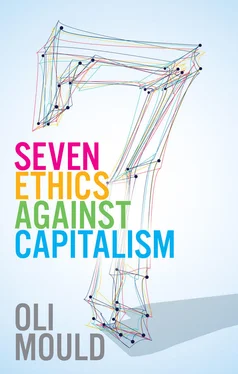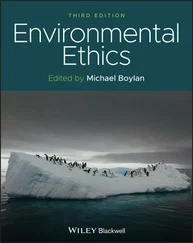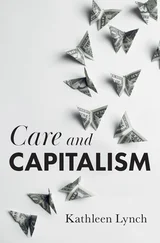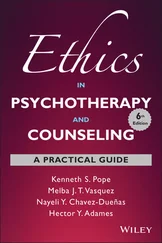Events therefore open up, rather than shut down, voices that have been marginalized by the hitherto prevailing order of life – capitalism. More importantly, all these empathetic responses have been examples of commoning in action. It is people – from the margins and the centre of capitalist society – sharing resources, free from the lure of capital and markets, to meet the specific needs of the vulnerable, and these responses are creating a commonwealth that is in direct contrast to the privatized world of capitalism. They are attempts to level up the injustices of the capitalist world. The outpouring of community care, mutual aid and solidarity in response to the coronavirus pandemic came about precisely because capitalist structures were so ill-equipped to do so. The Covid-19 rupture in the human and the nonhuman world is an opening up of a portal to the potential of a more just, equal and common world.
However, events are also events because everything new is realized, including unspeakable things. As such, this rupture in the capitalist Pandora’s box has also released untold horrors onto the world. Far right populism, peddled by a techno-fascism, is morphing into state authoritarianism and taking hold in previous Western bastions of (neo)liberal and parliamentary democracy. Even before the pandemic, horrific narratives that were considered unspeakable decades ago are now almost mainstream again, with openly fascist, racist, eugenicist and genocide-evoking rhetoric creeping back into view via social media, riot-inducing presidents and click-baiting news outlets. Throw into that potential climate catastrophe and ever more-sophisticated artificial intelligence that threatens to outstrip human ingenuity, and there is violent turbulence in the world.
In response to the coronavirus, some right-wing commentators have questioned whether taking such a massive economic hit is worth the lives of a few thousand old people. 37The then-US president Donald Trump repeatedly attempted to argue, against scientific evidence, that people should ‘go back to work’, because the cost of the prevention of coronavirus (i.e. a massive economic recession due to the lockdown) was worse than the cure. Full-on authoritarian dictatorships, such as Orbán’s Hungary, have risen up in the bastion of neoliberal democracy, the EU. In Israel, the courts were shut down. 38Police forces in the UK and US have been accused of using new government legislation to over-enforce and release their more oppressive tendencies onto the population. National policies of increased surveillance and the subsequent further erosion of civil liberties under the guise of ‘contact tracing’ have been implemented in China, South Korea, Taiwan and Israel. 39
But these lurches to the right are to be expected. When the prevailing order of capitalism ruptures, those in control and who benefit from its smooth functioning will do all they can to attempt to re-establish the status quo, and deny the new emancipatory realities from becoming pervasive. Put bluntly, those in power who benefit from capitalism will not want to see more equality, and therefore fight to maintain the standard of living they have become accustomed to.
And this is where ethics come back in. For ethics do not presuppose an externalized or marginalized ‘other’ to be somehow ‘reclaimed’; it is not a case of positioning one form of society over another. In rebuttal of those who attempt to re-establish a totalizing narrative of capitalist realism, in remaining faithful to the emancipatory truths of radical equality that the pandemic has unleashed, we are being ethical. Simply put, ethics are mindsets and ways of thinking, behaving and acting within society that help us to resist those who look to maintain the totalizing metanarrative, and in turn help us maintain fidelity to the truth released by the pandemic event.
Where does this situate the commons? If ethics thought of in this way rebuke any kind of totalizing force, then surely the commons is just another universality to be resisted? This may well be the case if the commons becomes an extension of the capitalist state system via annexation, co-option, enclosure or adaption; or if it is a totalizing view of the world. Critically, then, any expression of the commons as a superior form of organizing society embodies the very kinds of ideas that are to resisted.
And this is why the planetary articulation of the commons – with its focus on the continual co-constitutive adaption of resource and community – is ethical. It foregrounds continual and infectious exploration of more justice, more equality, more emancipatory potential. The political scientist Glen Coulthard has always maintained that any version of ‘reclaiming the commons’ is fraught with colonial overtones, and argues that we should ‘think about the commons as a collective effort to re-establish social relationships with each other and the land that have been systematically repressed through centuries of colonization’. 40Focusing on indigenous communities and how they are often marginalized from a ‘reclaiming the commons’ movement, he argues, is an affirmation of the commons as a continual practice of commoning that seeks to rupture the smooth functioning of capital, even in its most ‘progressive’ forms. To therefore think of the commons ethically is to articulate those commoning practices that foreground its most radically emancipatory potential. It is to keep the commons alive and immanent, and never for them to succumb to a totalizing narrative that imposes its will on others.
Hence, the version of ethics that this book propounds strives to move us away from the status quo (or ‘business as usual’, the mantra utilized in the wake of the coronavirus) of contemporary capitalism towards a more equal and just, diverse social world that is experienced and lived in common . The process of commoning needs this kind of ethical thinking to resist capitalism. To protect, maintain and diffuse the planetary commons that came crashing into the mainstream in the wake of the Covid-19 crisis requires ethical fidelities. And, I would argue, it needs seven of them. Hence there are seven ethics against capitalism.
Organizing towards a planetary commons
Therefore, the rest of this book offers a way in which ethics can be thought about pragmatically to organize and maintain commoning to resist the potential evil of capitalism subsuming the (natural, material, psychological, social, cultural and economic) resources that a commons can help to create, maintain, protect and diffuse throughout society.
Specifically, seven ethics of the planetary commons have been identified, which, I believe, offer ways to recognize how commoning occurs, how it can be catalysed and, crucially, when it is being co-opted, or enclosed by the prevailing order of capitalistic ideologies and succumbing to a totalizing ‘evil’. These ethics have not been arrived at arbitrarily; each has been considered as part of a layered whole that together forms a broad suite of resources. Each ethic is haunted by its opposite, a mirror image ready to subsume it if it is not practised ‘ethically’. One thing that they are not is a framework, or scaffolding or an instruction manual. If anything, they act as a trellis, encouraging continued commoning above, over, through and beyond (they are open-source). Each ethic builds upon the last, but they can also be read separately as they will apply variably in different situations, places and events. So through the ethics of mutualism, transmaterialism, minoritarianism, decodification, slowness, failure and love, this book aims to propel commoning as a productive force for change in the/a/your/our world.
1 1. Spivak, G. (2014) Planetarity. in Cassin, B. (ed.) Dictionary of Unstranslatables: A Philosophical Lexicon. University of Princeton Press, Princeton.
Читать дальше












